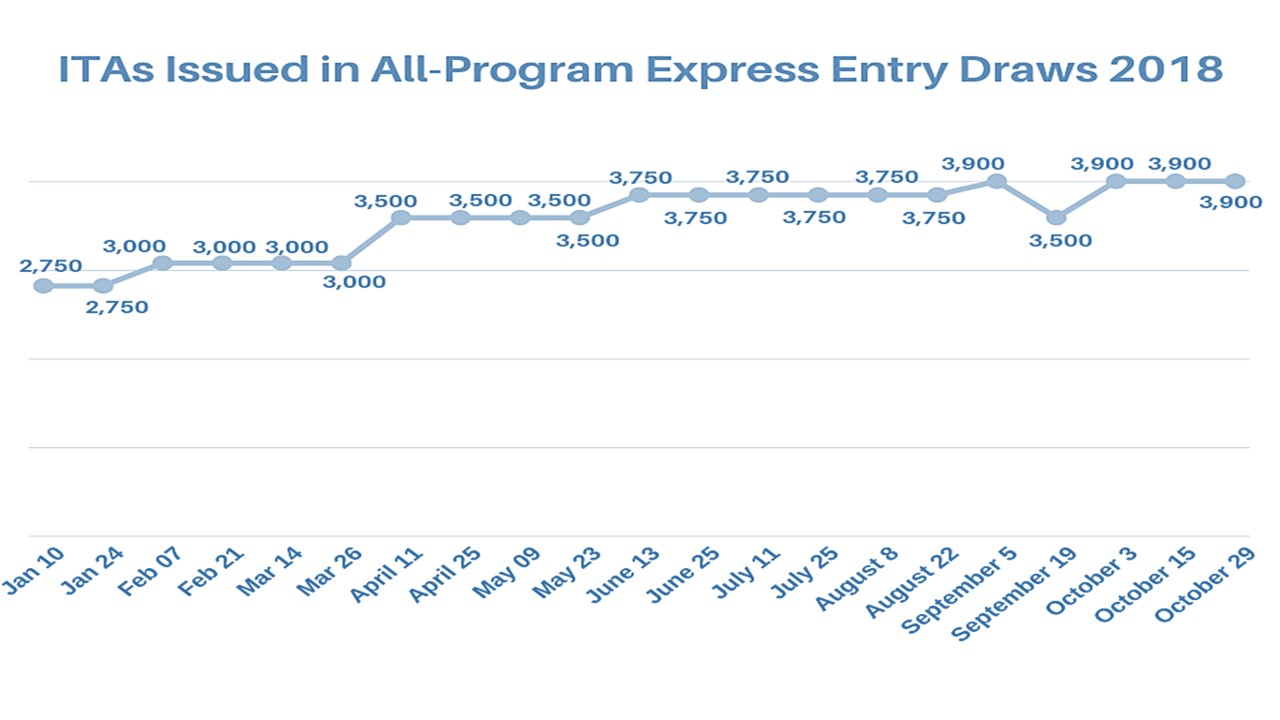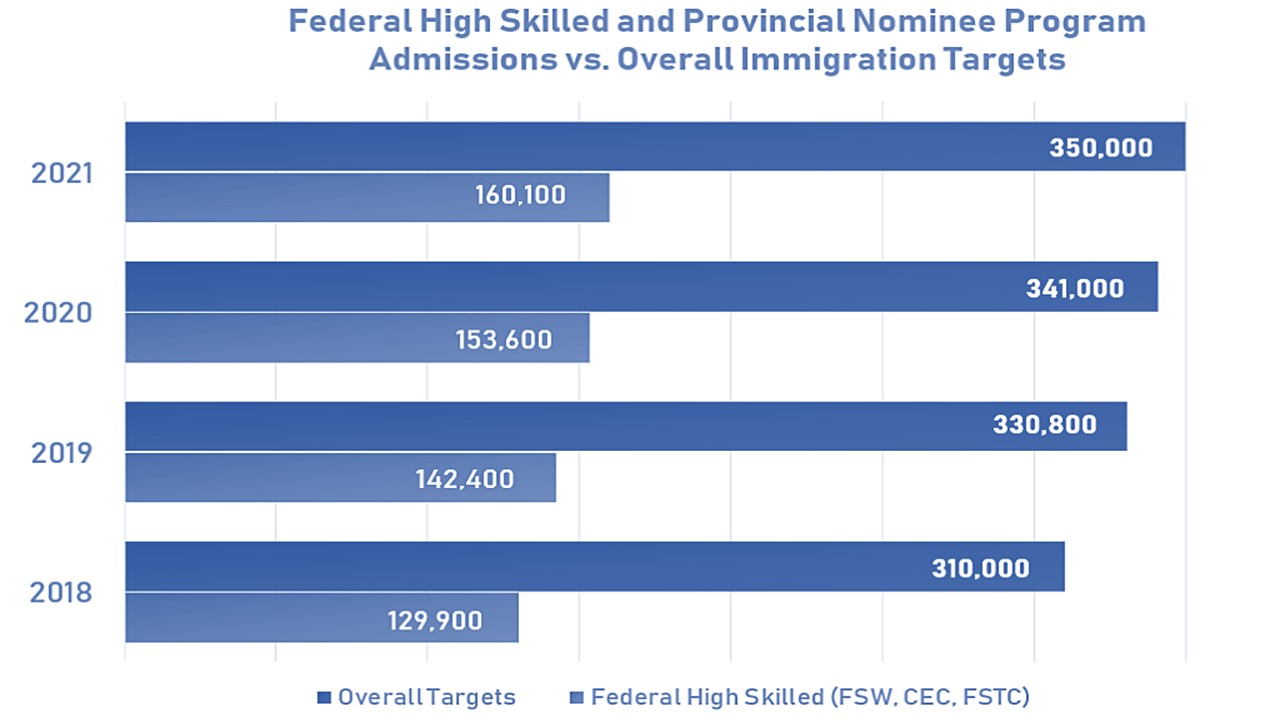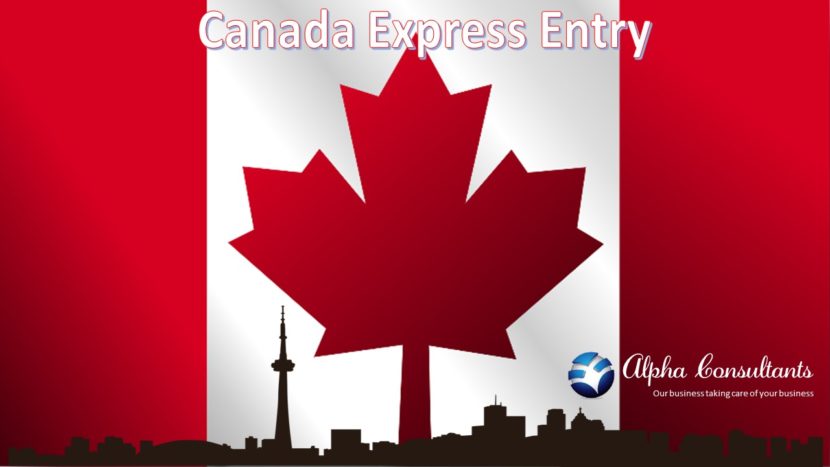Express Entry nears 2017’s invitation record after setting new October high
IRCC has issued 74,200 Express Entry ITAs in 2018, leaving it just 11,823 shy of record
Last month saw the Government of Canada more than double the number of invitations to apply for permanent residence that it issued to Express Entry candidates in October 2017, leaving it less than 12,000 invitations away from last year’s record-setting annual total.
Immigration, Refugees and Citizenship Canada (IRCC) issued 11,700 Invitations To Apply (ITAs) over the course of three draws last month, more than twice the 5,558 ITAs issued in October 2017.
October’s total pushed the number of ITAs issued to Express Entry candidates in 2018 to 74,200, leaving IRCC just 11,823 invitations away from tying 2017’s Express Entry record of 86,023 ITAs.
The federal Express Entry system manages the pool of candidates for Canada’s three Federal High Skilled economic immigration programs — the Federal Skilled Worker Class, Federal Skilled Trades Class and Canadian Experience Class.
Eligible candidates are given a score under the Comprehensive Ranking System (CRS) that determines their position in the Express Entry pool, and a set number of the highest-ranked are issued ITAs through regular draws from the pool.
Introduced in January 2015, Canada’s Express Entry system is now the main driver of economic immigration to the country.
To find out if you are eligible to enter the Express Entry pool, fill out a free assessment.
IRCC tying or even surpassing last year’s total could come to pass if it continues to hold regular draws between now and the end of the year and maintains draw sizes of 3,900 ITAs or more, as it has in four of the five all-program draws held since September 5.

IRCC has a 2019 admissions target for its Federal High Skilled immigration category of 81,400 new permanent residents. This target is slated to grow to 85,800 in 2020 and 88,800 in 2021 under Canada’s updated multi-year immigration levels plan, which the government made public October 31.
Almost all new permanent residents admitted to Canada through the Federal High Skilled category now have their applications processed through the Express Entry system.
Economic immigration to Canada will be responsible for the majority of new admissions to Canada through 2021 under Canada’s updated immigration targets. Combined, Canada’s various economic immigration programs will account for nearly 60 per cent of all admissions to Canada, with Federal High Skilled and Canada’s Provincial Nominee Program alone accounting for 44 per cent of total admissions over the next three years.

Ontario nominations favour Express Entry candidates
Nine Canadian provinces and territories participate in Canada’s Provincial Nominee Program (PNP) and each one has at least one stream that’s linked to the federal Express Entry system.
The PNP allows these provinces and territories to nominate a set number of economic immigration candidates for permanent residence each year.
Express Entry candidates with a provincial nomination receive an additional 600 points toward their CRS score and effectively move to the front of the line for an ITA for Canadian permanent residence.
Canada’s largest province, Ontario, has three Express Entry-aligned PNP streams that were responsible for 95 per cent of the nominations issued by the Ontario Immigrant Nominee Program (OINP) in 2018 — 6,411 out of the province’s 2018 total allocation of 6,600.
These streams — the Human Capital Priorities Stream, French Speaking Skilled Worker Stream and Skilled Trades Stream — allow the OINP to search the Express Entry pool for potential applicants who meet their eligibility criteria and can integrate quickly into the province’s labour market.
While Ontario has now reached its nomination allocation of 6,600 for 2018, the province said it will continue to accept and consider new applications for a provincial nomination, and those that have already been submitted, under the OINP’s 2019 nomination allocation, with the exception of its Master’s Graduate Stream.

